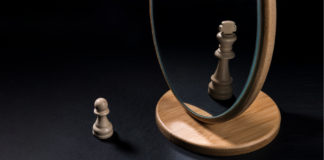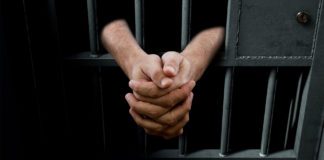My mechanism of resilience
When I was four years old, my younger brother was born. My parents focused on my brother and spent less time with me. It was only 40 years later that I discovered how this had affected me.
The leap into the unknown. Is there a cure for the fear of change?
Since the beginning, human life on Earth has been an assiduous battle with the unknown and a series of unprecedented risk-taking. Exposure to danger seems to be the price to pay for progress. This is the first lesson learned in childhood, when the need to move from dependence to independence pushes us beyond the limits of safety and personal comfort. It familiarises us...
The wellness expert amateurs who sickened us
In Europe, few people know Gwyneth Paltrow as anything other than an American actress. In the United States, however, her "modern lifestyle" wellness brand called goop is growing her reputation—in a negative way.
COVID-19: Forgiveness in isolation
When we are isolated with our family, problems that are sometimes easy to ignore become more acute, and the need to receive and offer forgiveness to those around us becomes increasingly evident.
The lens you see me through
Ask any cinematographer what gets them excited, and I guarantee there’s a fair chance they’ll answer with “lenses”. Having spent many years studying film and many more practising it, I can safely say that I now understand why this is—and it’s probably the first response you’d hear from me if you asked me the same question.
Why much of what we know about ourselves is false
Two groups of participants in an experiment received a set of eight questions similar to those found in IQ tests.[1] One of the groups was provided with the correct answers, which they could use to calculate their final score. Thus, for them, the conditions for cheating were favourable, and the test results showed that the members of this group obtained, on average, a...
Marital incompatibility, and how to avoid it
Our moral problem is man’s indifference to himself… We experience and treat ourselves as commodities, and [as if] our own powers have become alienated from ourselves… We are a herd believing that the road we follow must lead to a goal since we see everybody else on the same road. We are in the dark and keep up our courage because we hear...
Cures for loneliness
We live in a time in history when we seem to be connected in every way possible. It seems as if there are few, if any, who have no one to socialize with.
No tomorrow morning: the unexpected consequences of a disturbing law
In front of the camera, the woman smiles calmly. The dimple on her right cheek, among the wrinkles, shows that Annie has repeated this smile many times in her 81 years of life. Today, however, only her lips are smiling. A strange tension weighs on her eyebrows. Today is the day Annie has decided to die.
The slalom between regrets and wrong estimates
In October 2012, Forbes magazine published a list of the top 25 biggest regrets people have. According to the magazine, the most significant regrets are those concerning relationships with family members and friends, regrets concerning oneself, and career regrets.
Against the current
Over the last few decades, the picture of family life has undergone dramatic changes. The pervasiveness and normalization of divorce are just two of these changes.
The original meaning
Before I started looking for the meaning of life, I thought I had already found it. Or, that it had been given to me. In the world I came from, the road was clearly laid out. My life's major events were all mapped out, and precious little was negotiable.
Facebook, the Metaverse and a falsely promised future
Facebook is dead! Long live Metaverse! So proclaimed Facebook CEO Mark Zuckerberg to thousands of followers who tuned in to a livestream last Friday announcing the company’s rebrand.
COVID-19: Lessons on happiness from an invisible teacher
When life takes a bad turn, we are often tempted to console ourselves with nostalgia. We begin to look at the past in a different light. We realise that we had been too demanding of ourselves, of others, of the world. That even though we had everything we needed we still wanted more. That we were always looking for something else, without paying...
The one way road cancelled
I was there, I saw him. He was coming towards me mechanically, impassively, coldly. He suddenly stopped in front of me and waited for me to speak. For a moment, I froze. He was tall, thin, his face oval and his eyes blue, slightly sunken under his eyelids. I had met such people before, but there was something special about him.


























